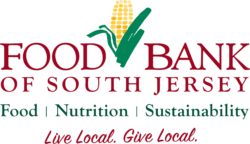
Camden Food Security Collective
Building off a decade of collective work led by the Campbell Soup Company through the Campbell’s Healthy Communities program, the Camden Food Security Collective (CFSC) was established in 2021. CFSC’s mission is to foster food security in Camden through structural equity to create lasting solutions by 2031. It is a coordinated community of diverse stakeholders, working hand in hand with community residents, to address the upstream causes of food insecurity. CFSC’s stakeholders include local health care and food systems’ providers, public agencies, healthcare payer entities, community-based organizations, public officials, local corporations, business owners, safety-net food distributors, workforce system representatives, and most importantly Camden residents.
PROBLEM
In Camden, like many communities in the United States, longstanding structural racism in public and private decision making has resulted in: neighborhood divestment, a built environment that limits mobility and access to choice, disparities in access to and outcomes of education and professional training, and a focus on direct services over policy and systems changes. As a result:
OPPORTUNITY
Camden has an abundance of dedicated community-based organizations who have innovated to close some of these gaps through nutrition education, food assistance programs, and innovative social service models. Within CFSC, members like the Food Trust have provided technical assistance to over 40 corner stores to become “Healthy Corner Stores.” Parkside Business & Community in Partnership (PBCIP) is supporting the development of more local produce growers to supply a food prescription program at Virtua hospital. Center for Family Services operates a multitude of programs serving families and children across the city. And in the Camden food ecosystem, organizations like Cathedral Kitchen are training residents in their culinary program while serving the needs of people experiencing homelessness.
Approach
In 2021, the Food Bank of South Jersey and the Camden Coalition began leading the development of the of CFSC as co-backbone organizations, utilizing the power of the Collective Impact framework, which includes five conditions:
- A common agenda;
- Shared measurement;
- Mutually reinforcing activities;
- Continuous communication; and
- A strong backbone.
Through engagement with a broad set of stakeholders, we created our Common Agenda (Fig. 1) which represents our shared goals for this work. This Common Agenda aims to address the upstream drivers that impact food security and bring about lasting solutions for Camden by 2031. Currently our Collective includes representation from more than 26 organizations as well as several community residents who comprise our three Working Groups and Steering Committee.
Together we are actively working to identify and implement the right opportunities and approaches to bring about the programs, practices, policies, and system changes that are needed to ensure that Camden is a thriving, equitable community where every person can reach their full potential.

HOW CAN YOU GET INVOLVED?
If you, or someone you know, would like to be a stakeholder in shaping this collective or are interested in becoming a funding partner, please reach out to Lavinia Awosanya at lawosanya@foodbanksj.org.
Funded by:

